A look at which global leaders were invited to trump inauguration invitations foreign leaders and how these invitations shaped international relations and diplomacy.
Introduction
The presidential inauguration of Donald Trump on January 20, 2017, marked a pivotal moment in U.S. political history. As with all inaugurations, invitations were extended to trump inauguration invitations foreign leaders, dignitaries, and prominent political figures. The process of selecting and inviting these guests was a crucial aspect of diplomatic protocol and international relations.
The Invitation Process and Protocol of Trump Inauguration Invitations Foreign Leaders
The State Department and the Presidential Inaugural Committee (PIC) were responsible for coordinating the trump inauguration invitations foreign leaders. Unlike state visits, where guest lists are meticulously curated based on diplomatic strategy, inaugurations often include invitations to key allies and global partners.
According to official reports, several world leaders received formal invitations, while some were extended courtesy invitations as a diplomatic gesture. These invitations, sent well in advance, allowed foreign dignitaries time to arrange travel and security logistics for the event in Washington, D.C.
Key Foreign Leaders Invited to Trump Inauguration Invitations Foreign Leaders
Allies and Strategic Partners
Many of the United States’ closest allies were invited to attend Trump’s inauguration, including representatives from NATO member states, the United Kingdom, Canada, Germany, France, and Japan. These countries play a vital role in global security, economic relations, and strategic partnerships, making their presence at the ceremony significant.
The United Kingdom, a long-standing ally of the U.S., sent official representatives, though then-Prime Minister Theresa May did not personally attend. Similarly, Canadian Prime Minister Justin Trudeau sent a diplomatic envoy rather than attending in person.
Russia and China’s Invitations
Given the complex nature of U.S.-Russia relations, there was considerable speculation regarding whether Russian officials, including President Vladimir Putin, were invited. While no official confirmation was given regarding an invitation extended to Putin, Russian representatives were expected to attend.
China, another major global power, received an invitation as part of the standard diplomatic outreach. However, due to ongoing trade and geopolitical tensions, its delegation was composed primarily of diplomatic envoys rather than top officials.
Middle Eastern Representation
Leaders from the Middle East, including representatives from Saudi Arabia, Israel, the United Arab Emirates, and Egypt, were invited. The Trump administration later pursued a robust Middle East policy, which included the controversial recognition of Jerusalem as Israel’s capital and the Abraham Accords, making these invitations geopolitically relevant.
Latin American and African Delegations
Invitations were extended to select leaders from Latin America and Africa, with the intent of fostering stronger diplomatic ties. Leaders from Mexico, Brazil, and Argentina were invited, though Mexican President Enrique Peña Nieto did not attend, given rising tensions over Trump’s stance on immigration and border policies.

Controversy Surrounding Invitations
Trump inauguration invitations foreign leaders stirred some controversy, particularly concerning which countries were included and which were not.
- European Concerns: Some European leaders, particularly from EU nations critical of Trump’s policies, were hesitant about attending. Given Trump’s stance on NATO funding and the European Union, some leaders opted to send lower-level representatives instead of attending personally.
- Russia Allegations: Given the allegations of Russian interference in the 2016 U.S. presidential election, any invitation extended to Russian officials was viewed under scrutiny. Critics argued that extending an invitation to Putin or his senior representatives could signal an alignment that was politically sensitive.
- Human Rights Considerations: The inclusion of invitations to leaders from countries with human rights concerns, such as Saudi Arabia and Egypt, drew criticism from human rights organizations. Some advocacy groups questioned why leaders accused of authoritarian rule were welcomed at such a prestigious U.S. event.
Who Declined the Invitation?
Several notable figures declined invitations to trump inauguration invitations foreign leaders, either citing scheduling conflicts or political reasons. Among them were:
- German Chancellor Angela Merkel, who opted to send a senior diplomat instead.
- French President François Hollande, who did not attend but sent a representative.
- Mexican President Enrique Peña Nieto, who declined due to diplomatic tensions.
- Several African Union representatives, citing logistical issues or political disagreements.
Diplomatic Significance of Trump Inauguration Invitations Foreign Leaders’ Attendance
The attendance of foreign leaders at a U.S. presidential inauguration is more than just a ceremonial affair. It serves as a barometer of international relations, alliances, and geopolitical dynamics. Leaders who choose to attend signal their willingness to engage with the new administration, while those who decline may indicate diplomatic friction or ideological divergence.
Strengthening U.S. Alliances
For nations closely aligned with the United States, sending representatives to the inauguration reinforces diplomatic ties. For instance, Japan and South Korea, both strategic partners in the Asia-Pacific region, maintained their presence to ensure continuity in diplomatic relations.
Signaling Policy Shifts
Trump inauguration invitations foreign leaders guest list provided insights into the foreign policy direction of his administration. The presence of Gulf state leaders and Israeli representatives foreshadowed his administration’s Middle East strategy, while the lukewarm response from European leaders reflected concerns over Trump’s stance on NATO and the EU.
FAQs About Trump Inauguration Invitations Foreign Leaders
1. Has any U.S. president invited foreign leaders to their inauguration before Trump?
No, Trump’s 2025 inauguration was the first to formally invite foreign leaders.
2. Why did President Xi Jinping not attend the inauguration personally?
President Xi sent Vice President Han Zheng as his representative, marking the first time a senior Chinese official attended a U.S. presidential inauguration.
3. How did the public react to the invitations extended to foreign leaders?
Reactions were mixed, with some viewing it as a positive step towards global engagement, while others felt it deviated from tradition.
4. Were there any security concerns due to the presence of foreign dignitaries?
Yes, hosting foreign leaders required enhanced security measures and coordination among multiple agencies to ensure safety.
5. Could this set a precedent for future U.S. presidential inaugurations?
It’s possible. This move might influence future presidents to consider inviting trump inauguration invitations foreign leaders, reflecting a more global approach to diplomacy.
Conclusion
The invitations extended to trump inauguration invitations foreign leaders underscored the intricate balance of diplomacy, alliances, and international relations. While some world leaders embraced the occasion as an opportunity to reaffirm ties, others declined, highlighting ideological divides and policy disagreements. Regardless of attendance, the event set the stage for Trump’s foreign policy trajectory over the next four years.

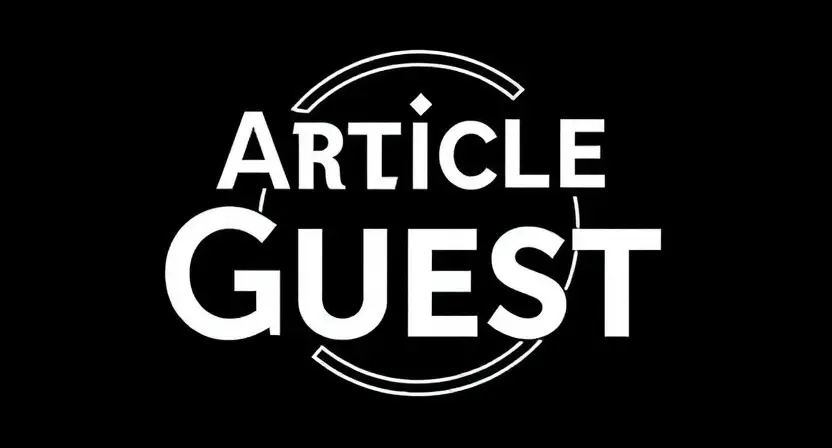
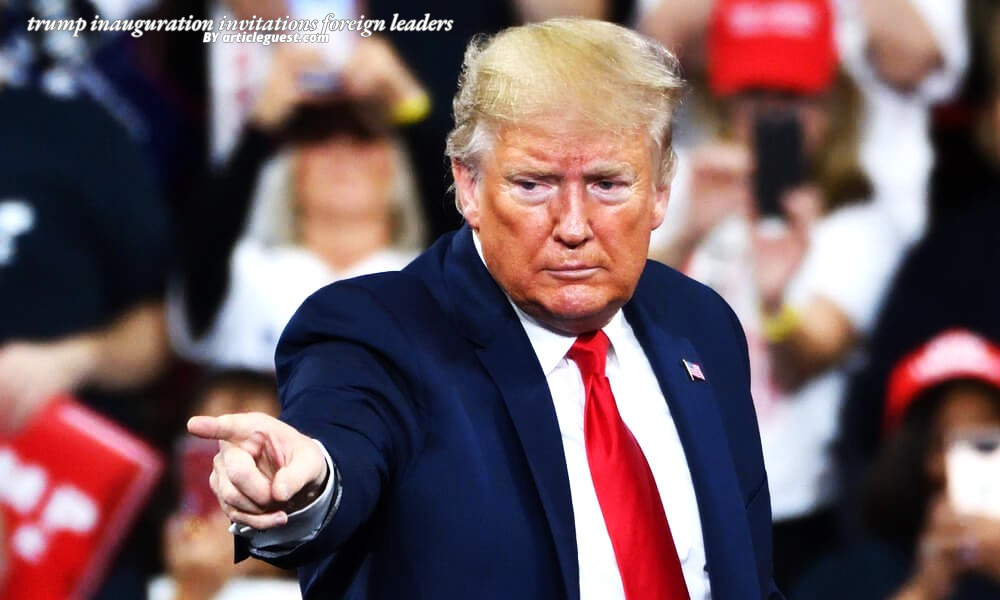



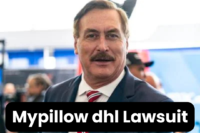
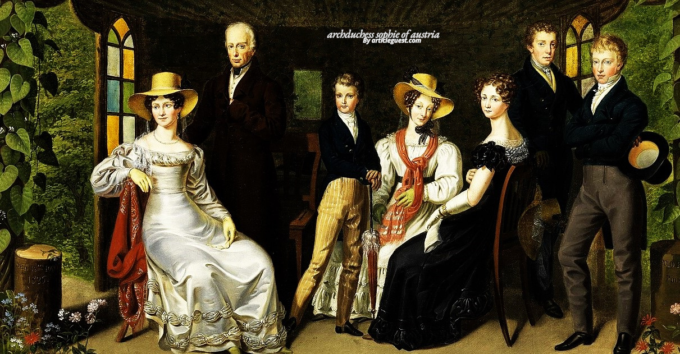

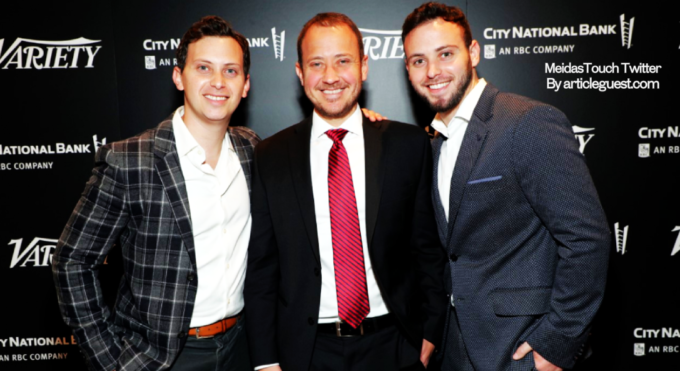



Leave a comment